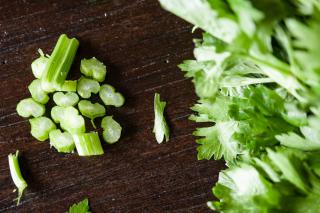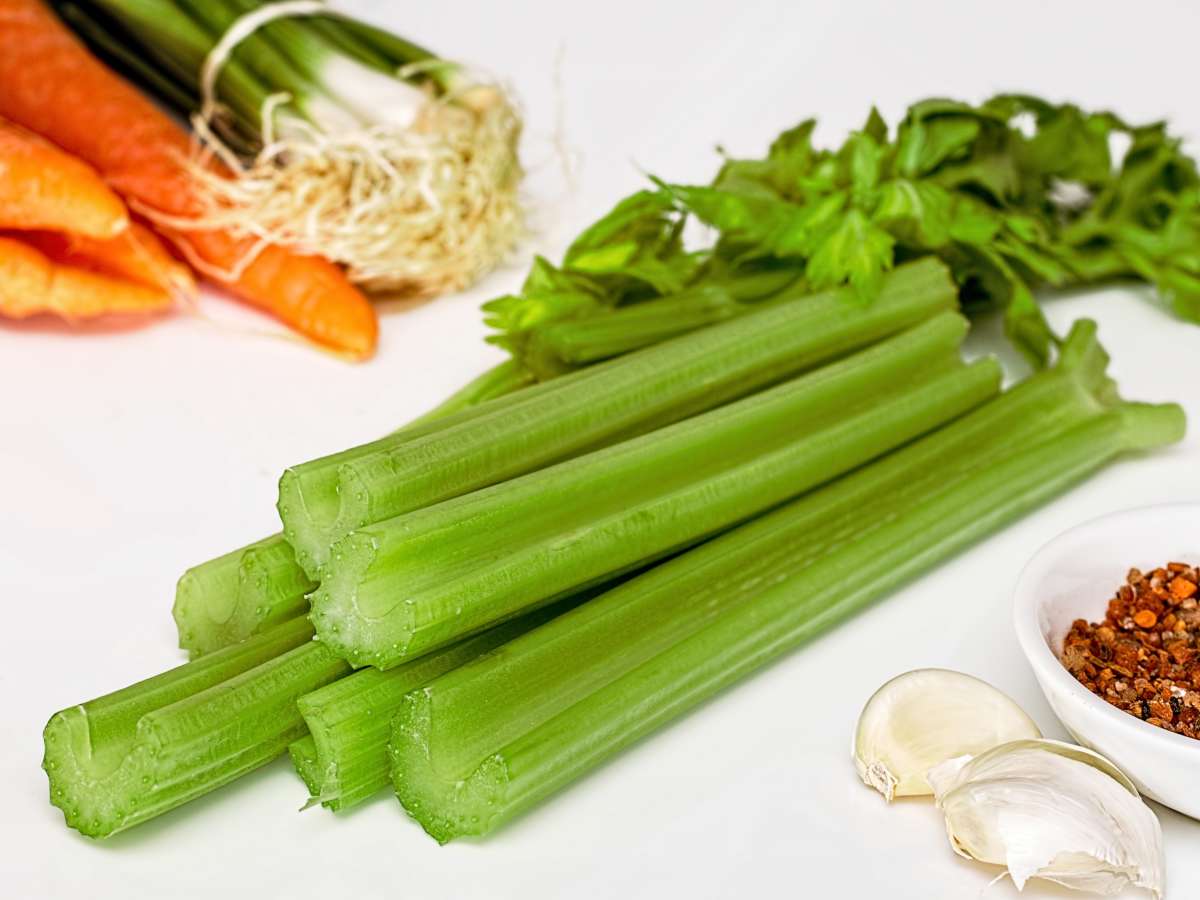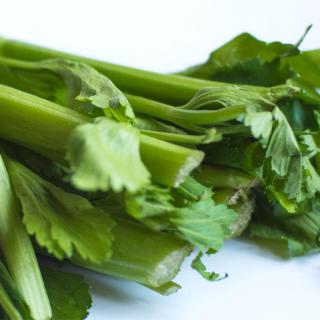Celery (Apium graveolens) is a hollow-stemmed condiment full of health benefits.
It belongs to the Apiaceae family (parsley family), native to Europe and Asia. Its cultivation
goes back to Greek and Roman times, but celery only recently became part of modern vegetable patches, in the XVIIth century.
Since then, it has kept on proving its many therapeutic benefits and medicinal value.
- Vegetable patch: succeed in growing celery
Health benefits of celery
- Low in calorie intake but rich in vitamins A, B and C, celery provides a complete pack of nutrients critical to ensuring our days are full of energy.
- As an antioxidant, celery is said to have anti-inflammatory and antibacterial properties. These are capable of slowing multiplication of cancerous cells.
Celery is a diuretic. It eliminates toxins that accumulate in the body. That is why persons who are ill with heart, liver or kidney disorders add it to their diet. It is also the reason why celery juice appears in weight loss diets.
- Celery is particularly indicated to cleanse intestines. Brew infusions from celery seeds to treat biliary and kidney stones. The same infusion soothes pain in persons who experience arthritis, gout and rheumatism. It also increases blood circulation in muscles and joints.
- Celery similarly shares hypoglycemic properties that make it a relevant food for persons with diabetes.
- Celery seeds, both appetite-enhancing and diuretic, stimulate appetite and digestion. They make expelling gas easier.
- Take note, however, that leaves and roots contain compounds that enhance photosensitivity. Avoid exposing yourself to the sun after having ingested celery.
- Celery essential oil has relaxing and sedative properties. It clears the way for you to fall asleep and has been revealed to be effective against insomnia. It is also recommended against stress.
Growing stalk celery for its benefits
- Celery grows best in full sun or part sun in humus-rich soil, cool but well drained.
- You can also plant celery in a pot, it will grow just fine in a large garden box. The only thing is to often check that soil stays a bit moist.
- Watch out for the celery fly, it stains leaves and keeps the plants from growing. Celery also fears slugs, rust and downy mildew.
- Vegetable patch: all about growing celery
Celery in cooking and its properties

Celery is a major ingredient in the world-famous delicious recipe for marinière mussels!
Celery nutritional content
16 kcal / 3.5 oz (100 g) when raw, and when cooked 13 kcal / 3.5 oz (100 g). Celery is diuretic, a de-wormer, eases digestion and stimulating.






I have a question
Ask my questionI'd like to comment
Post a commentNo comments yet – be the first to share your thoughts!